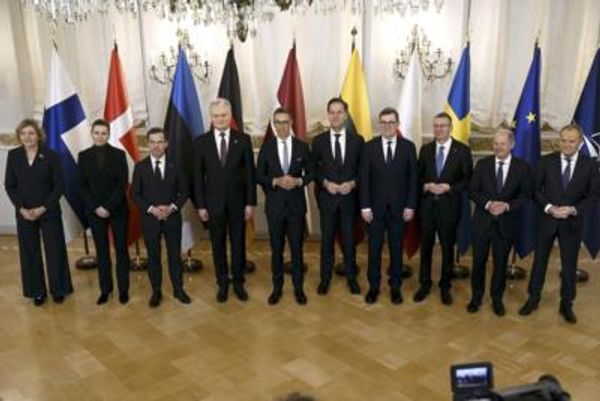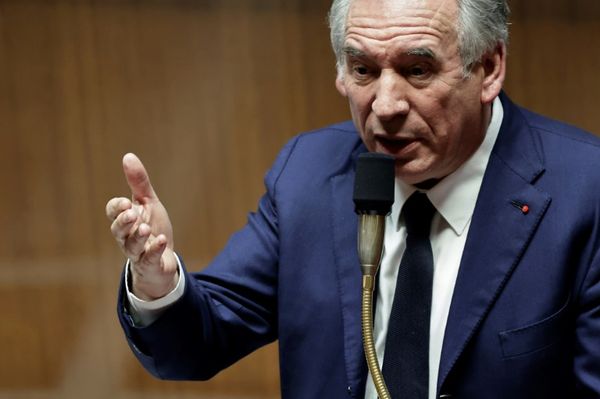
Sing along with the Chelsea Football Club diehards to the tune of “Robin Hood”:
Abramovich, Abramovich, buys all the men.
Tells you everything you need to know about how sports-washing works. It cleanses the most murky of reputations of the world’s billionaire class while it corrupts football fans’ love of the game into an oligarchical popularity-building contest.
Now the announcement overnight by the UK government that it was extending sanctions to seven more oligarchs in a list headed by Chelsea’s multibillionaire owner Roman Abramovich offers sport the opportunity to break the nexus. It could be the biggest change to the sports industry since the broadcasting wars of the 1990s.
The ownership of England’s Premier League Chelsea club by Abramovich is — or rather was — a turning point in modern sport in 21st-century capitalism, bringing together the green-washing of fossil fuel fortunes with the reputation laundering of the mysterious Russian oligarchs.
Football has been the vehicle of choice for billionaires wanting to wash off the stain of oil. The City Football Group is majority owned out of Abu Dhabi and controls English League leader Manchester City and Australian A-League men’s leader Melbourne City.
Late last year perennial EPL struggler Newcastle United was bought by an entity majority owned by Saudi Arabia’s sovereign wealth fund. Its fans are already spending the money.
England is the laundromat of choice. Until just this week, it offered the perfect range of services: high-level financialised systems for moving money in, out and all around (now safely out of the remit of European Union regulators); property laws that safeguard money against arbitrary state seizure (unlike, say, Russia); party donation practices where the political tit has for generations been rewarded with the House of Lords tat; tough defamation laws to squash any unsavoury Grub Street speculations.
For the oligarchs, it’s not just England. The top club in the now-banned Russian competition, Zenit St Petersburg, is owned directly by the state energy company Gazprom. The past decade’s top club in Ukraine, Shakhtar Donetsk, is owned by local oligarch Rinat Akhmetov.
It’s got deep roots: most famously, the most unsurprisingly successful club in 1970s East Germany, Dynamo Berlin, was headed by Stasi boss Erich Mielke.
Sports-washing can be (sometimes literally) horses for courses. In Australia, the major contribution is through horse racing with the Melbourne Cup-winning Godolphin syndicate owned by Dubai’s Sheikh Mohammed bin Rashid Al Maktoum.
For the oligarchs investing in English football, there’s quids that go with the pro quo. The billionaire-owned clubs have won over the fan bases by pumping money in to buy, develop and pay players, inflating wages bills beyond the capacity of non-billionare-owned clubs to participate. Chelsea, for example, is reported to have a wages bill almost 10 times that of, say, Burnley, who they beat 4-0 last weekend (and where their fans disrupted a tribute to Ukraine with their Abramovich song).
Abramovich has a reputation as the oligarchs’ oligarch. He made his money out of the privatisation of Russia’s oil and aluminium industries in the 1990s and is reported to have tapped Vladimir Putin as Boris Yeltsin’s designated successor in 1999.
Since buying Chelsea in 2003, Abramovich has vaulted the club from a mid-table also-ran to the global elite, delivering 19 titles or cups in under 20 years. In the last games under his control, the club won the Club World Cup, all but qualified for the European Champions League quarter final, and narrowly lost the final of the English League cup in an epic penalty shoot-out.
No wonder Chelsea fans sing his name. And no wonder fans of other clubs disparage the team as “Chelski”.
The challenge for Chelsea — and other clubs holding out for a sports-washing boost to their fortunes — is that once Russian oligarchs are taken out of the equation, there’s only so many billionaires with an uncertain past or a fossil fuel-tainted present who need the clean up that professional sport offers.
That’s driving football to adopt the US sports business-oriented approach where teams not only need to pay for themselves, they need to turn a profit for their owners.
That shift, too, seems hard for Chelsea, at least for the time being. Although they’ve been given a special exemption to continue playing while under sanction, they can’t sell merchandise or tickets to games (other than for pre-paid season ticket-holders). They can’t sign players for future contracts, nor enter into transfer arrangements.







